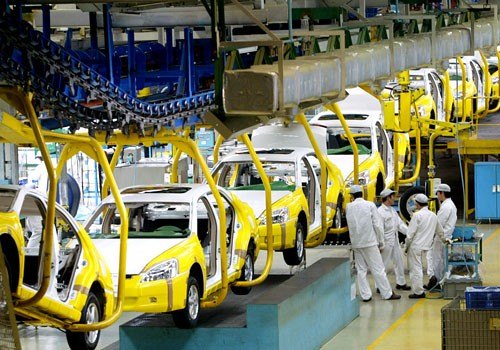China Saves Japan's Bacon

While Japanese automakers are digging in for the big sales drop at home, caused by the evaporating government stimulus money, all eyes are across the China Sea. A large share of this year’s profits will come from China, says The Nikkei [sub].
- Honda’s expects to sell 632,000 units in calendar 2010 in China, up a conservative 9 percent. That should net them $1b in profits from China in fiscal 2010.
- Nissan wants to do even better. They expect more than $1.2b in operating profit from the China business this fiscal year. Over 30 percent of the forecasted $4.1b in group operating profits should come from China. Sales are seen up 14 percent to 860,000 units in 2010. Soon, China might be bigger than Nissan’s current top market, the U.S.A.
- Mazda anticipates “a big jump in profit” from China, without divulging numbers.
- Notably absent from the list: Toyota. But their January-August sales were up 22 percent to 503,800 vehicles, says the Wall Street Journal.

Bertel Schmitt comes back to journalism after taking a 35 year break in advertising and marketing. He ran and owned advertising agencies in Duesseldorf, Germany, and New York City. Volkswagen A.G. was Bertel's most important corporate account. Schmitt's advertising and marketing career touched many corners of the industry with a special focus on automotive products and services. Since 2004, he lives in Japan and China with his wife <a href="http://www.tomokoandbertel.com"> Tomoko </a>. Bertel Schmitt is a founding board member of the <a href="http://www.offshoresuperseries.com"> Offshore Super Series </a>, an American offshore powerboat racing organization. He is co-owner of the racing team Typhoon.
More by Bertel Schmitt


































Comments
Join the conversation
Is there such a thing as sweet-and-sour bacon?
For Japanese, German, and US automakers, reaping profits in China does not necessarily fix anything at home. (ie GM) China has extreme currency controls. It is darn near impossible to repatriate funds back to the home country. Why do you think China has such high FDI? (Foreign Direct Investment) Foreign companies cannot readily get their capital out of the country. So for now the automakers are not complaining, there is growth and the books look great. What happens when the growth ends? Japan, German, and US auto manufacturers/suppliers are exporting less & less to China. This is because of past & present China rules of domestic content. This results in less home country manufacturing and the transfer of technologies. Bringing cars into China is expensive with VAT and other import taxes. At the same time the China government discourages auto imports and looks for future FDI commitments to allow a limited amount of imports. So yes, the Japanese will see improved paper profits even with a downturn in their home market. However, since "point of manufacturing" is what really drives an economy. Japan's economy (and the US for that matter) benefits very little from reaping China profits if they cannot be re-invested outside of China.
China is Japan's #1 export market, accounting for 18% of their total exports. America, Japan's previous most important export market, is now 16%. And this is just the beginning, as the yuan eventually appreciates, and China's economy grows further China will become even more important to Japan then it already is now. And there are already geopolitical repercussions. China, has been investing billions of dollars of Japanese government bonds in the last few months, leading to accusations that they are intentionally increasing the value of the yen. This has pushed a massive influx of FDI into China from Japanese companies as the a strong yen makes it cheaper, and yen-dominated exports expensive. Exactly what China wants. But its not just China, South East Asian countries, South America, Indonesia, and India are going to become huge demand-driven markets. While China will exert some level of hegemony over these countries, they won't be the sole driver of the world's economy. But is interesting to watch the formerly-insular business thinking of Japanese companies become actually progressive in how they deal with these emerging countries. We are seeing Japanese restaurant chains expanding into China, Thailand, Indonesia, Japanese agriculture are trying to establish premium branding in China. Nikkei's documentary programming "Gaia no Yoake" even had a show about a ramen chain Ippudo (I've been to the one in New York) expanding in Indonesia. The traditional Tonkotsu ramen, which is made from pork bones, would be problematic in world's largest Islamic country, so they are completely rethinking what traditional ramen is, to not only adjust flavor for Islamic countries but bringing it back into adjacent markets like Singapore. Japanese curry house, Cocoichiban, is now even expanding into India, Japanese curry in where curry originates is a massive gamble, a move that would have been unimaginable from Japanese companies in the past. This introverted, 'hikkomori', Japan is becoming an out-going extrovert.